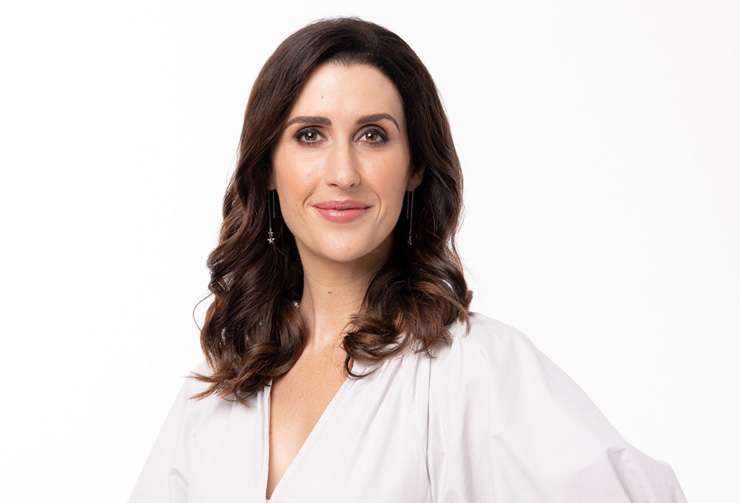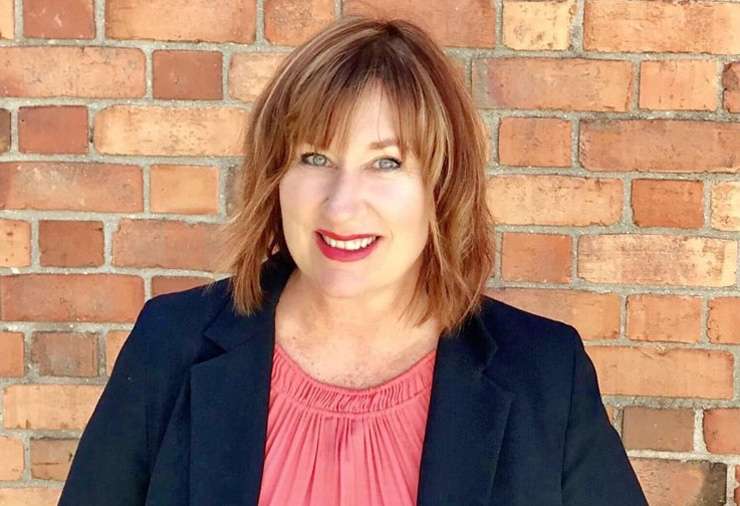First-home buyers eyeing up a home often want to jump into the market before they have enough money saved for their deposit, or enough evidence accrued they can repay a big loan. Enable.me financial adviser and former TVNZ Breakfast host Nadine Higgins and Lesley Harris from the First Home Buyers Club give their key tips on how newcomers should get themselves ready to buy in 2023.
NADINE HIGGINS
What is the biggest hurdle looking ahead into next year?
The biggest hurdle is undoubtedly interest rates. The higher they go, the more it impacts how much you can afford to borrow. The banks are already testing lending affordability at much higher rates than you can currently secure (around 8%), but the forecasts change and rates are expected to get higher than currently expected, or stay there for longer. The banks will become more circumspect about the level of lending they’re willing to approve. That’s prudent – but it makes the job of getting approved for lending that much harder. It’s also why we don’t recommend you wait for the bottom of the market; that’s when banks are least likely to want to lend to you. Buy based on your own financial capability.
Start your property search
What should first-home buyers be doing to get themselves bulletproof so banks will approve their loan?
You need to clean house in your financial management and have evidence of that for at least three months. So, forget AfterPay, get rid of credit card and other short-term debt, lower your credit card limit, have evidence of regular saving, don’t go into unarranged overdraft. You don’t need to go ‘nil by mouth’ on the financial front because the banks know that’s not sustainable, so while it might help give your savings a bump the banks will apply a minimum level of reasonable expenses to their affordability calculations, even if yours fall below that.
Getting a deposit together is tough – how can they amp up their saving?
What’s appropriate will depend on your situation and how close or far away from that goal you are. Going on a financial detox and spending nothing, for example, might be appropriate if you’re three months away from having a sufficient deposit, but if you’re two years away, that’s not realistic or sustainable. If we’re getting serious, we need a plan with milestones to work to, which helps keep you motivated, and to track your spending so we know where the inefficiencies are. We reduce fixed costs where we can, keep discretionary costs to an absolute minimum and look for ways to bolster income. Get to grips with the grants or schemes that you may be eligible for, like KiwiSaver grants, which are higher if you’re buying a new-build property.

Enable.me financial adviser Nadine Higgins: "Second-tier lenders have their place but they aren’t a cure-all if the bank says no." Photo / Supplied
What should they do if banks turn them down?
We have to establish why you’re being turned down. Is it because your deposit is insufficient, your income isn’t high enough, your expenses are too high relative to your income, or a combination of all of the above? That helps inform our next steps – do we need to work on bolstering income to pass serviceability criteria? Do we need to save more? Reduce our expenses – or a combination of all of the above. The other thing to consider at this juncture is whether there are other ways to achieve the same end. Perhaps your first property isn’t your home and we look to invest elsewhere first. Perhaps you can join forces in a syndicate with others, or perhaps your parents can contribute equity to help you get over the deposit hurdle.
Should first-home buyers consider non-bank lenders? What’s the truth about those lenders – is it a crazy thing to do or not that bad?
Second-tier lenders have their place but they aren’t a cure-all if the bank says no. They may be helpful if you’re self-employed and don’t have two years’ worth of financials, your income is variable or if you have a bad credit rating. They will usually still require a 20% deposit, however. The interest rates aren’t significantly higher, but there are application fees that can be substantial and that amount usually gets added to the loan.
Do you have any other tips and tricks for first-home buyers?
We often see people ploughing 10% into KiwiSaver – the fact they’re saving at 10% of their income is great but putting it all into KiwiSaver can limit your options. If you end up needing to buy something you won’t live in you can’t use that lump sum. If you buy at auction, you need to have the deposit available in cash, when your KiwiSaver funds are not released until settlement. Similarly, if you’re buying a new-build you’ll need some of the cash up front as a deposit. We’d usually recommend putting in at least what your employer will match and giving yourself some flexibility by saving those extra funds elsewhere. Also, be very careful about your investment settings when you’re intending to withdraw the funds to buy a property – having it in growth or aggressive means if there’s a market downturn at the wrong time, you’re very exposed to the risk of that money not being available when you need it to be.
LESLEY HARRIS
What is your top advice for first-home buyers?
Get out of debt and also do your research as to what grants are available, and also take a good look at the new partnership scheme with Kainga Ora – the first big thing for first-home buyers for a long time.
What is the First Home Partner scheme with Kainga Ora?
It’s the government’s shared equity scheme. There’s been some private ones around but the difference with this one is there is no cost. It’s up to $200,000 - you don’t automatically get $200,000. It depends on how much of a share you want them to have and obviously if it’s a lesser value property it won’t pay $200,000. There is no interest paid on that money so it does make a big difference to people for their weekly mortgage repayments because they are not paying interest on that portion, and they can buy out the shares through the term which is 15 years and it can be extended to 20. It’s not a grant, it’s like a co-ownership scheme. It’s a cash contribution.
What is great about the scheme for first-home buyers?
It’s the first thing we’ve seen that I personally go ‘right, that would actually make a difference’. If you think about how much $200,000 is to service, you’re talking $300 a week or something, well that could be the difference between someone being able to get a mortgage and not, if they don’t have to service that $200,000. I think it’s a great one for people who are struggling to get the deposit together. You only need to come up with a 5% deposit as opposed to 10, 20%, so it’s going to help people with the deposit. It’s exactly like the bank of mum and dad, I suppose, it’s just not everyone has a bank of mum and dad. It also takes the pressure off the bank of mum and dad which can impact people’s retirement prospects if you’re having to chip in $100,000 or whatever. It’s not just about what it’s going to do for people’s children, it’s also about a generation of people having to fund houses with their children.

Lesley Harris from the First Home Buyers Club: "Get rid of your debt and be the best possible customer that you can be to the bank." Photo / Supplied
What difference does only needing a 5% deposit make for first-home buyers?
For an $800,000 house, a 5% deposit is only $40,000 and within the First Home Buyer club membership base the average KiwiSaver balance is $45,000 or thereabouts, so you can withdraw your KiwiSaver. If you can get the First Home Grant get that to add into it and if you took the partnership scheme with Kainga Ora that could make the difference between you being able to go ahead and not. It’s the first real, material thing that I’ve seen. Tweaking income caps and stuff like that just hasn’t helped. Five per cent on $800,000, that’s $40,000 as opposed to $160,000 which is 20% so it is actually quite different if you think about people’s savings patterns and how long they take to save. You can really cut down the length of time that it would take.
How should first-home buyers prepare in order to be able to achieve their first home?
The biggest thing is get rid of the debt. Our members have debt of on average about $9000 which will reduce what you can borrow by about $75,000, so if you’re needing to borrow every possible cent that you can access based on your income, which is 99.9% of first home buyers, that debt will make the difference between you getting into a house or not. So the first thing you’ve got to do is get rid of your debt and be the best possible customer that you can be to the bank – tidy up your accounts, make sure debt is paid down if at all possible and just have really nice clean accounts with nothing going into overdraft that shouldn’t.
Should people look close to home or further afield for a home?
Do your research on all the different kind of areas because post-Covid the way in which people work has changed. Once upon a time everybody had to flood into the city or whatever – well a lot of people don’t now so what are some of the areas maybe on the outskirts that would be viable options now that maybe you hadn’t thought about? Look at the different areas, look at the different developments and really become an expert in buying first homes. And find out what you can access. Can you get a Home Start Grant? Can you get your KiwiSaver out and how can you do that? Do you qualify, what’s the criteria?











































































